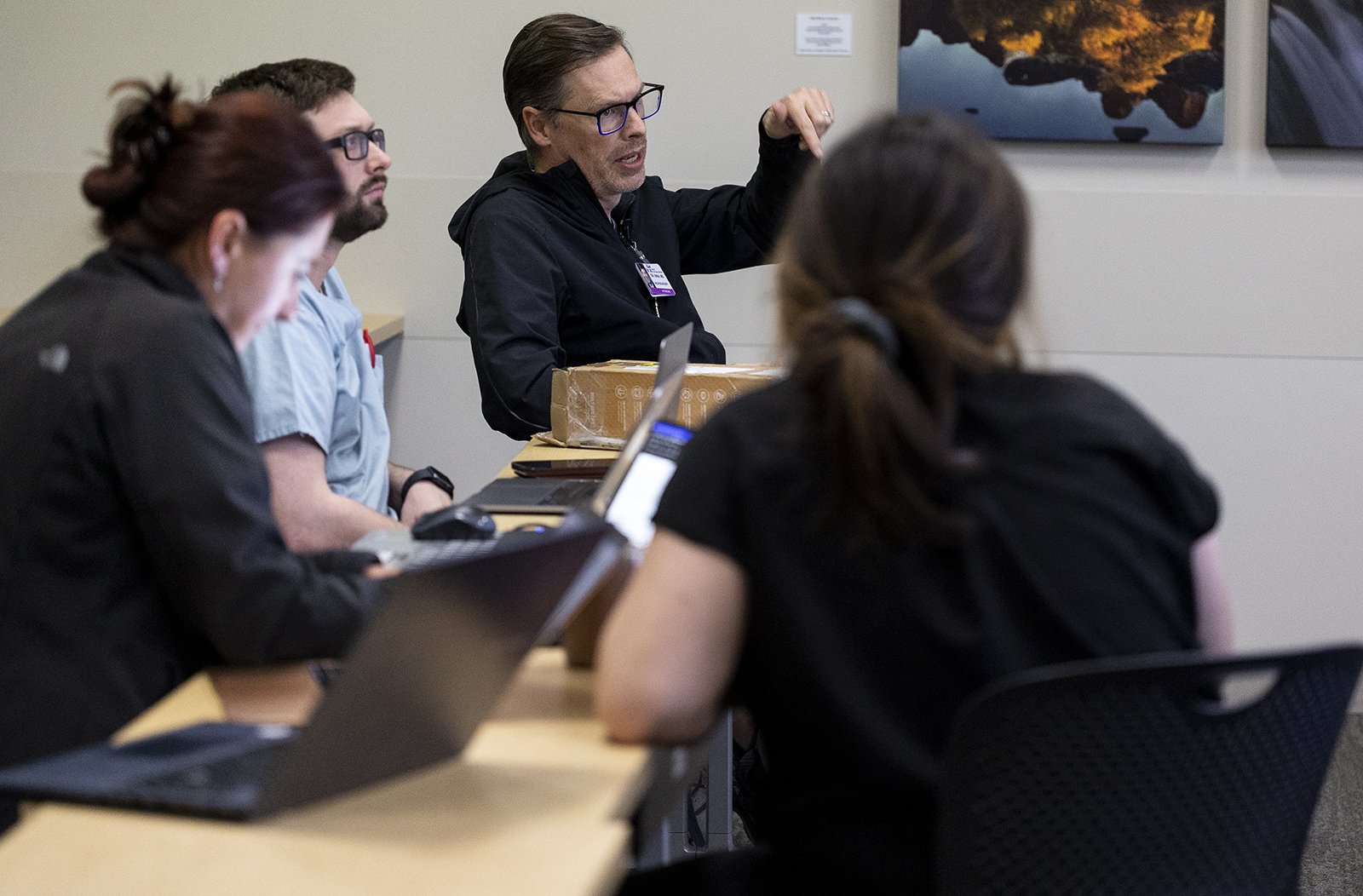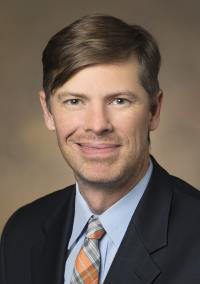
Alumni Profile: Robert Bina, MD

Growing up in a military family, Robert Bina, MD, went to high school in Macon, Georgia, and later attended the University of Pennsylvania. A year after finishing his undergraduate degree, Dr. Bina moved to Arizona, where he got more involved in the medical community.
“I finished a graduate degree at Northern Arizona University; it was sort of a molecular biology degree,” Dr. Bina said. “I worked in Phoenix for a little while and then went to medical school as a latecomer.”

“I’m ultimately interested in the welfare of people and humanity,” Dr. Bina said. “There’s something very important in changing an individual’s life and helping heal someone’s body that is deeply meaningful.”
During his years in medical school, he realized his love for neuroscience and surgery could be combined in neurosurgery, which brought him to a medical field that interested him. Dr. Bina chose epilepsy as his subspecialty in neurosurgery.
“I would have to say that neurosurgery is very demanding, and that’s one of the reasons why I’m interested in it,” Dr. Bina said. “It’s not just a technical skill, but you have to walk with people through some of the darkest, scariest things that can happen to a human.”
After graduating in 2013, Dr. Bina matched into the neurosurgery training program at the University of Arizona College of Medicine – Tucson and continued his fellowship training at Swedish Medical Center in Seattle and the University of Louisville in Kentucky.
In addition to working as a neurosurgeon at Banner Health in Phoenix, Dr. Bina trains medical students as an assistant professor of Neurosurgery at the college.
As an educator, Dr. Bina employs two teaching philosophies that have proven effective in helping students learn information: repetition and the Socratic method, which involves sharing a dialogue between teacher and students. The goal is to increase the amount of students’ knowledge.
“Asking questions like, ‘What do you think? Would you comment on this?’ exposes what students know and what they don’t know,” Dr. Bina said. “Dr. Travis Dumont down in Tucson always said there are three pieces of the pie: the things you know, the things you know that you don’t know and then the things that you don’t know that you don’t know.”
Dr. Bina engages research residents in teaching the next generation of neurosurgeons, demonstrating surgical techniques and more recent advancements in the field.
He said the impact that he can make on patients’ lives combined with continuous learning to sharpen his surgical skills and training keeps him inspired.
Dr. Bina still recalls the words that Elaine Niggemann, MD, retired faculty, shared with his cohort at their White Coat Ceremony, “It takes 10 years to get 10 years of experience.”
“There is no teacher like experience,” Dr. Bina said. “Knowledge helps you in situations that you’ve never encountered. You don’t know how to navigate a situation until you’ve actually experienced it.”
About the College
Founded in 2007, the University of Arizona College of Medicine – Phoenix inspires and trains exemplary physicians, scientists and leaders to advance its core missions in education, research, clinical care and service to communities across Arizona. The college’s strength lies in our collaborations and partnerships with clinical affiliates, community organizations and industry sponsors. With our primary affiliate, Banner Health, we are recognized as the premier academic medical center in Phoenix. As an anchor institution of the Phoenix Bioscience Core, the college is home to signature research programs in neurosciences, cardiopulmonary diseases, immunology, informatics and metabolism. These focus areas uniquely position us to drive biomedical research and bolster economic development in the region.
As an urban institution with strong roots in rural and tribal health, the college has graduated more than 1,000 physicians and matriculates 130 students each year. Greater than 60% of matriculating students are from Arizona and many continue training at our GME sponsored residency programs, ultimately pursuing local academic and community-based opportunities. While our traditional four-year program continues to thrive, we will launch our recently approved accelerated three-year medical student curriculum with exclusive focus on primary care. This program is designed to further enhance workforce retention needs across Arizona.
The college has embarked on our strategic plan for 2025 to 2030. Learn more.